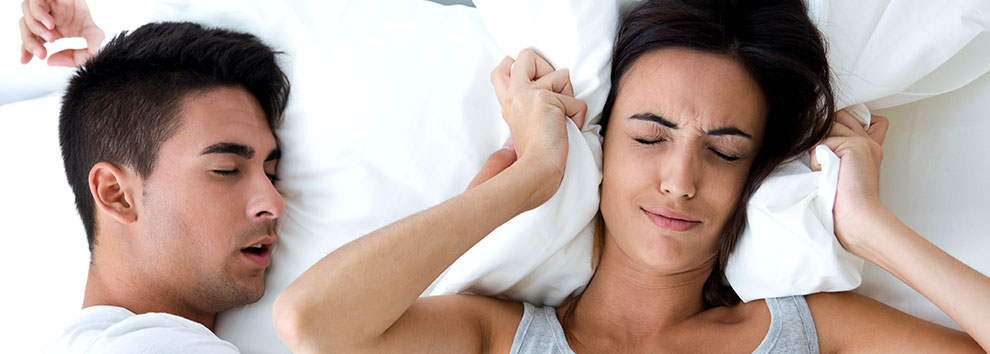Sleep Apnea Surgery and Inspire® Implant

Sleep apnea is a common sleep disorder that involves repeated breathing interruptions during sleep that may occur hundred of times each night as a result of structural abnormalities or brain malfunctions. This condition affects about 18 million people of all ages in the US with a risk of many serious complications. Fortunately, most cases of sleep apnea can be effectively diagnosed and treated.
There are two main types of sleep apnea: obstructive and central. Obstructive sleep apnea is the more common form of this disorder, and involves a blocked or collapsed airway during sleep that may result in breathing abnormalities. Central sleep apnea is less common, and involves a malfunction in which the brain doesn’t send the proper signals to control breathing during sleep.
Patients who are overweight, have high blood pressure, are older, smoke or have a family history of sleep apnea may have an increased risk of developing obstructive sleep apnea, while those with heart disease or a stroke are at an increased risk for central sleep apnea.
Symptoms of Sleep Apnea
Many patients with sleep apnea may not be aware that they have this condition, as breathing interruptions are not usually remembered upon waking. However, patients with sleep apnea may experience:
- Excessive daytime sleepiness
- Snoring
- Waking up with a dry mouth or sore throat
- Morning headaches
- Insomnia
- Waking up to shortness of breath
Interrupted breathing during sleep may be noticed by your partner or by your doctor during a sleep study. If left untreated, sleep apnea can lead to high blood pressure, cardiovascular disease, stroke, memory problems, weight gain, impotency, headaches and daytime fatigue leading to job impairment and motor vehicle crashes.
Treatment of Sleep Apnea
There are many different treatment options available for sleep apnea, depending on each patient’s individual case. Many patients can experience significant results from continuous positive airway pressure (CPAP) machines, adjustable airway pressure devices or oral appliances, all used while sleeping. While treatment often begins with conservative techniques, many patients require surgery in order to effectively treat their condition.
Surgery for sleep apnea aims to remove the excess tissue from the nose or throat that causes snoring or sleep apnea. This can be done through procedures such as:
- Uvulopalatopharyngoplasty (UPPP) – This procedure involves removing tissue from the rear of the mouth, as well as removing the tonsils and adenoids to stop vibration and snoring. UPPP is performed under general anesthesia.
- Maxillomandibular advancement – During this procedure, the upper and lower part of the jaw are moved forward to create more space behind the tongue and soft palate and reduce the risk of obstruction during sleep.
- Tracheostomy – Often performed after other treatments have failed, this procedure involves inserting a metal or plastic tube into the throat to help the patient breathe during sleep. The opening remains covered during the day but helps air pass directly in and out of the lungs during sleep. Tracheostomy is reserved for severe, life-threatening cases of sleep apnea.
These procedures can be performed using minimally invasive techniques to provide effective treatment with reduced downtime, bleeding and pain. You will likely experience throat pain for one to two weeks after surgery as the area heals.
Inspire® Implant
The Inspire® implant is the only FDA-approved OSA therapy that works comfortably inside your body to treat the root cause of sleep apnea, so you can breathe regularly and sleep soundly. No mask or hose required. Here is a link to their website to learn more about this surgery that Dr. Tuper has been doing since early 2022, in Fort Walton Beach, FL.
Your doctor will determine which procedure is best for you based on a thorough evaluation of your individual condition. Patients can take certain steps to handle symptoms of sleep apnea on their own, including losing excess weight, sleeping on your side and using a saline nasal spray to keep your nasal passages open at night.

